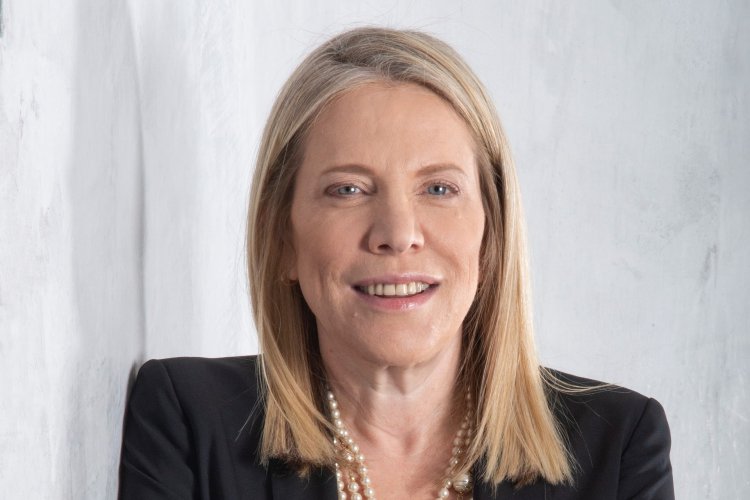Marian, when we mention Philip Morris, few brands come to mind. PMI has been around for a long time. Do walk us through how PMI started, the core business and everything you wish our readers to know about the company.
PMI has been around for more than 100 years and today, we are a leading international tobacco company with a diverse workforce of around 77,000 people who hail from every corner of the globe. We are committed to being a great employer and strive to be environmentally and socially responsible.
We are dedicated to doing something very dramatic – we want to replace cigarettes with smoke-free products. We believe the best way is for adults who smoke to quit completely and for those who don’t, not to start at all. But for smokers who don’t quit, less harmful alternatives should be made available.
That is why we have more than 400 scientists, engineers and technicians working round the clock, and have invested more than USD$6 billion to-date in developing less harmful alternatives to cigarettes.
It’s definitely the biggest shift in our history and it is the right thing to do.
Being a tobacco company and how smoking is deemed as one of the leading causes of preventable deaths globally, how have Philip Morris dealt with this stigma all these years?
It is a known fact that cigarette smoking is addictive and causes smoking-related diseases such as lung cancer, cardiovascular disease, and emphysema. Burning tobacco generates a large number of harmful chemicals, many are considered harmful, and together they are recognized as the main cause of smoking-related diseases. It is likely that by eliminating burning, the formation of toxicants is significantly reduced. PMI has been working on inventing products without smoke for more than 20 years – these are smoke-free products that do not burn tobacco, products that adult smokers can switch to completely and not return to cigarettes.
Today, science and technology have brought us to a place where smoke-free alternatives to cigarettes are possible and available for existing adult smokers to switch to. Since there is no burning, the levels of harmful chemicals are significantly reduced compared to cigarette smoke. Although these products are not risk-free and are addictive, they are a better choice for existing adult smokers than continuing to smoke cigarettes.
Let’s talk about Singapore. Singapore was one of the first countries to implement a detailed tobacco control programme. In fact, smoke-free public places and the banning of tobacco advertisements were implemented all the way back in the early 1970s. How does Philip Morris ensure you still have a presence in a country as highly regulated as Singapore?
PMI supports evidence-based policies that encourage smokers to quit and dissuade others from starting smoking, and agree that regulation is necessary to ensure nicotine-containing products are sold responsibly.
As the science around smoke-free alternatives continues to build rapidly, we are encouraged that Singapore continues to study the evidence. We believe that science will continue to lead the change in tobacco control policies and that effective harm reduction measures can complement current prevention and cessation initiatives for the 400,000 adult smokers who do not quit.
Marian, there has been an overall business transformation strategy at Philip Morris. Can you enlighten us a little?
We are rapidly transforming our business, driven by our vision of replacing cigarettes completely with smoke-free alternatives for a smoke-free world.
It’s the biggest shift in our history. And it’s the right one for our consumers, our company, our shareholders, and society.
Approximately 7.3 million adult smokers around the world have already stopped smoking and switched to PMI’s heated tobacco product, which is currently available for sale in 47 markets around the world. Since there is no burning, the levels of harmful chemicals are significantly reduced compared to cigarette smoke.
The science on our heated tobacco products is progressing rapidly. They indicate that whilst not risk-free, it presents less risk of harm compared to continued smoking for adult smokers who switch to it completely instead of continuing to smoke.
PMI’s 2018 Sustainability Report outlines how we are accelerating efforts to accomplish our smoke-free vision. Our aim is to reduce smoking among PMI consumers more than four times faster than the target set by the World Health Organization. PMI’s aspiration is that at least 40 million people who would otherwise have smoked cigarettes will have switched to PMI’s smoke-free products by 2025, reducing the total number of PMI cigarette smokers by 55 million.
How has this new strategy impacted your Asian market?
We have launched our heated tobacco product in Japan, Korea, Malaysia and New Zealand and the results have been positive. In Japan, the market share of our heated tobacco products reached 16.9% in the first quarter of 2019 – In just two years after heated tobacco products were introduced in Japan, cigarette sales fell 27 percent and at the same time, the total tobacco category continues to see a decline.
PMI is committed to ‘unsmoke’ the world, and it must include Asia which is home to almost 60% of people who smoke in the world.
We’ll continue to openly share our science and data with governments, healthcare professionals, scientists, and consumers to highlight the benefits that smoke-free products can deliver to Asian countries with risk proportionate regulations. Our vision is that these products will one day replace cigarettes to the benefit of millions of people who smoke in Asia.
The tobacco industry is highly regulated. The question is, how do you build brand awareness around this ‘controversial industry’?
Tobacco products should be marketed and sold responsibly.
Beyond brand awareness, it is of paramount importance that adult smokers have access to accurate information and the scientific evidence behind less harmful alternatives in order to make informed choices. Governments play a crucial role here. They can influence the pace and scale of switching away from cigarettes by adopting risk-proportionate regulations and providing smokers with accurate information.
Philip Morris International has just launched a campaign, #itstime, in conjunction with the very recent World No Tobacco Day, which I know PMI is excited about. Tell our readers about it, Marian.
It’s Time is an initiative to address an important public health issue – how can all stakeholders come together to help adult smokers quit smoking? Currently, according to the World Health Organisation (WHO), there are over 1 billion smokers worldwide, and WHO predicts that there will still be more than 1 billion people who smoke in 2025.
We believe it’s time to let science lead the conversation. Today, thanks to science, technology and innovation, there are smoke-free products that are better alternatives for adult smokers that would otherwise continue smoking. While smoke-free products are not risk-free, evidence suggests that they are better alternatives for adult smokers who would otherwise continue smoking.
We believe that these adult smokers deserve access to, and information about, less harmful, smoke-free alternatives to continued smoking that are backed by solid science, so they can make their own choices.
The #itstime message needs to hit-hard with key regulators for the success of this campaign. How do you aim to do that?
We want to continue to hold multi-stakeholder conversations with all relevant parties and that includes the Government. Today, we share our science and data openly with the scienti?c and medical communities, and governments around the world.
We remain hopeful that science will lead the way in regulation and that smoke-free products can be made available for adult smokers while restricting access to the youth and non-smokers.
You are in one of the most complex industries when it comes to marketing and branding. Firstly, there is the stigma and then, of course, the legislation in place. It takes someone of a distinct character to do this job. Tell us about yourself, Marian.
I probably don’t look, speak or act like someone who would be the chief spokesperson for a tobacco company. I don’t smoke. But I don’t have to smoke in order to advocate on behalf of PMI, on behalf of the men and women who deserve better alternatives to continued smoking. It is a challenging job for sure but I also believe it is far, far more important than trying to persuade someone to switch from one restaurant chain, or lipstick brand, or saving bank to another. PMI is on a trajectory to become a completely different company and I am glad to be part of it.
















